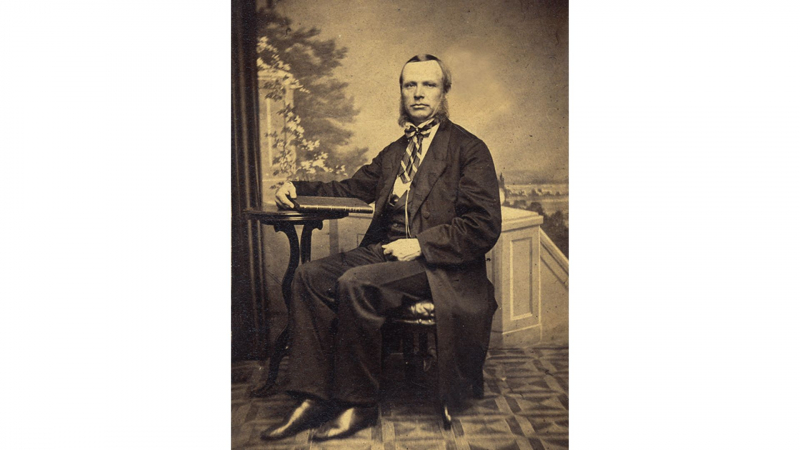Krišjānis Valdemārs
The next most important historical figure in Latvia Krišjānis Valdemārs. Krišjānis Valdemārs (1825-1891) was a writer, editor, educator, politician, lexicographer, folklorist, and economist who served as the spiritual head of The First Latvian National Awakening and was the most famous member of the Young Latvians movement. He was the driving force behind the Latvian naval movement, motivating the establishment of numerous naval schools around the Latvian coast. The seamen they trained effectively Latvianised the crews of previously non-Latvian merchant vessels stationed in Latvia. Shipbuilding was also begun. Valdemārs's greatest symbolic contribution to the emerging Young Latvian movement was his Lutheran thesis of public statement at his home claiming that Valdemārs is a Latvian.
He moved to St. Petersburg after graduating in 1858 and worked as a clerk in the Ministry of Finance. He was also a correspondent for the St. Petersburgische Zeitung, a local German-language daily. In 1862, he became the editor and major publisher of the Latvian journal Pterburgas Avzes, the most radical Latvian newspaper at the time. It was adamantly opposed to Baltic German dominance and the lingering vestiges of feudalism in Baltic provinces. The publication became the primary outlet for Young Latvian beliefs. The Russian government closed it down in 1865.
Valdemārs assisted in the establishment of the first Latvian naval school in Ainai in 1864 as a means of making Latvians wealthy. He famously said at the beginning, "Brauciet, latvji, jūriņā, krājiet zeltu pūriņā!" (Latvians, sail the seas, stuff your dowry with gold). Several other Latvian naval schools were created in Latvia's coastal towns during the next few years. It had a significant impact on the local economy and culture since hundreds of Latvian farmer sons were given the opportunity to receive free education and become captains or steersmen. It ushered in the "Age of Sailors' ' in Latvia, with active shipbuilding beginning in coastal towns and villages, and Latvian-built, Latvian-owned, and -crewed ships becoming the first national commerce fleet, even participating in trans-Atlantic journeys.








